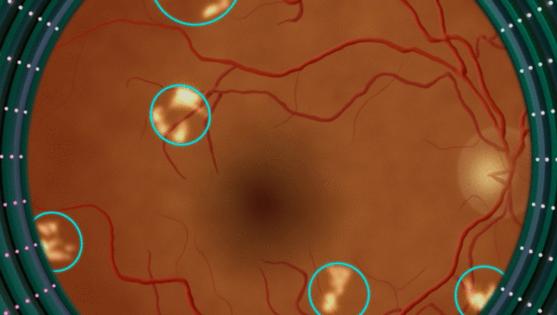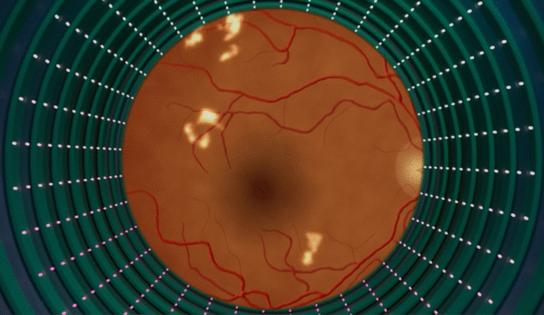As AI eye exams prove their worth, lessons for future tech emerge
Published in Health & Fitness
Christian Espinoza, director of a Southern California drug-treatment provider, recently began employing a powerful new assistant: an artificial intelligence algorithm that can perform eye exams with pictures taken by a retinal camera. It makes quick diagnoses, without a doctor present.
His clinics, Tarzana Treatment Centers, are among the early adopters of an AI-based system that promises to dramatically expand screening for diabetic retinopathy, the leading cause of blindness among working-age adults and a threat to many of the estimated 38 million Americans with diabetes.
“It’s been a godsend for us,” said Espinoza, the organization’s director of clinic operations, citing the benefits of a quick and easy screening that can be administered with little training and delivers immediate results.
His patients like it, too. Joseph Smith, who has Type 2 diabetes, recalled the cumbersome task of taking the bus to an eye specialist, getting his eyes dilated, and then waiting a week for results. “It was horrible,” he said. “Now, it takes minutes.”
Amid all the buzz around artificial intelligence in health care, the eye-exam technology is emerging as one of the first proven use cases of AI-based diagnostics in a clinical setting. While the FDA has approved hundreds of AI medical devices, adoption has been slow as vendors navigate the regulatory process, insurance coverage, technical obstacles, equity concerns, and challenges of integrating them into provider systems.
The eye exams show that the AI’s ability to provide immediate results, as well as the cost savings and convenience of not needing to make an extra appointment, can have big benefits for both patients and providers. Of about 700 eye exams conducted during the past year at Espinoza’s clinics, nearly one-quarter detected retinopathy, and patients were referred to a specialist for further care.
Diabetic retinopathy results when high blood sugar harms blood vessels in the retina. While managing a patient’s diabetes can often prevent the disease — and there are treatments for more advanced stages — doctors say regular screenings are crucial for catching symptoms early. An estimated 9.6 million people in the U.S. have the disease.
The three companies with FDA-approved AI eye exams for diabetic retinopathy — Digital Diagnostics, based in Coralville, Iowa; Eyenuk of Woodland Hills, California; and Israeli software company AEYE Health — have sold systems to hundreds of practices nationwide. A few dozen companies have conducted research in the narrow field, and some have regulatory clearance in other countries, including tech giants like Google.
Digital Diagnostics, formerly Idx, received FDA approval for its system in 2018, following decades of research and a clinical trial involving 900 patients diagnosed with diabetes. It was the first fully autonomous AI system in any field of medicine, making its approval “a landmark moment in medical history,” said Aaron Lee, a retina specialist and an associate professor at the University of Washington.
The system, used by Tarzana Treatment Centers, can be operated by someone with a high school degree and a few hours of training, and it takes just a few minutes to produce a diagnosis, without any eye dilation most of the time, said John Bertrand, CEO of Digital Diagnostics.
...continued
©2024 KFF Health News. Distributed by Tribune Content Agency, LLC.










Comments